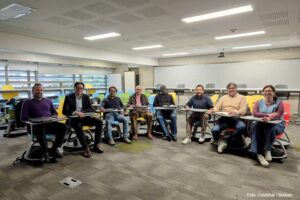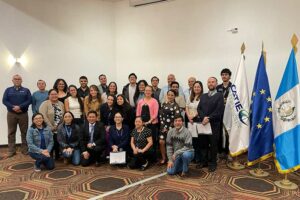CATIE and the ESCALAR Project Strengthen Alliances with More Than 15 Grassroots Organizations in the Trifinio Region
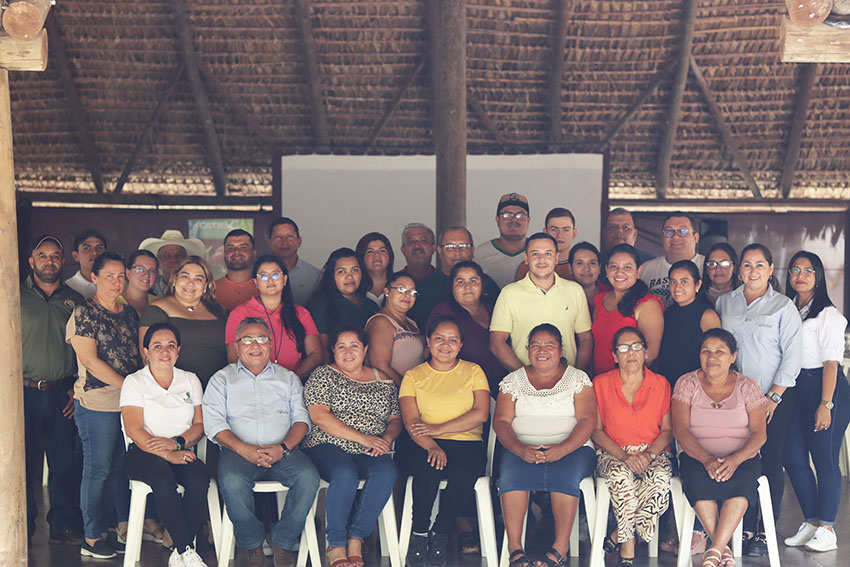
- During 2024, the ESCALAR project has renewed agreements with 12 associative rural enterprises, business incubators, and multi-actor platforms, in addition to signing three new working agreements with organizations in El Salvador, Guatemala, and Honduras.
The ESCALAR Project: Scaling Climate Change Adaptation Solutions for Resilience and Reducing Migration in the Central American Dry Corridor, implemented by CATIE (Tropical Agricultural Research and Higher Education Center), with support from the Swedish Cooperation, impacts 23 municipalities and six departments in El Salvador, Guatemala, and Honduras, which are part of the Central American Dry Corridor, in the Trifinio region.
A fundamental part of the project's operation is the work carried out with the implementing partner organizations in the territory, such as associative rural enterprises, business incubators, and multi-actor platforms. In 2024, working agreements were renewed in El Salvador with the Trifinio Municipalities Association and the Catholic University of El Salvador (UNICAES); in Guatemala with the Suchitán Agricultural Producers Association (APAS), the Olopa Producers Association (APOLO), the Integral Agricultural Coffee Cooperative (CAINCAFE, R.L.), and the Eastern University Center (CUNORI); and in Honduras with the Ecological Coffee Growers Cooperative of La Labor Ocotepeque (COCAFELOL), the Foundation for Rural Business Development (FUNDER), the Güisayote Commonwealth, the trinational multi-actor platforms, the Trifinio Women's Network (HOSAGUA), and the Trinational Frontier Commonwealth Río Lempa.
ESCALAR also managed to sign three new agreements in 2024 in El Salvador with the Agricultural Production Cooperative Association “Mirador El Escondido” of Limited Responsibility (ACOPAME de R.L.); in Guatemala with the Progressive Women’s Association of the Plan del Jocote Sector (AMUPROCAJ); and in Honduras with the Santa Teresa Ocotepeque Biological Reserves Coffee Growers Cooperative (COCREBISTOL).
To facilitate administrative processes with the mentioned organizations and the project, a trinational workshop titled: Simplification of the Disbursement Review and Control Process was held in Esquipulas, Guatemala, on May 16, where administrative staff were trained to improve financial reporting and monitoring of the implementing partner organizations. The objective of this activity was to present the methodology led by the ESCALAR administration team, composed of Sandra Espino and Álvaro Castillo.
Castillo, ESCALAR’s administrative officer, mentioned that the proposal will streamline the reporting and review processes. “Through this new methodology, the information is uploaded to an online file by each of the implementing partners and is configured so that the objectives of each cooperation agreement are automatically fed, reducing the time in operations and administrative analysis,” he stated.
A total of 33 people from the three countries attended the workshop, with 60% female participation. Gloria Díaz, representative of AMUPROCAJ, mentioned that the training was a success as they learned new things for accountability that reduce time and paperwork, which will greatly help them better manage their organization. “I am happy to put the acquired knowledge into practice,” she mentioned.
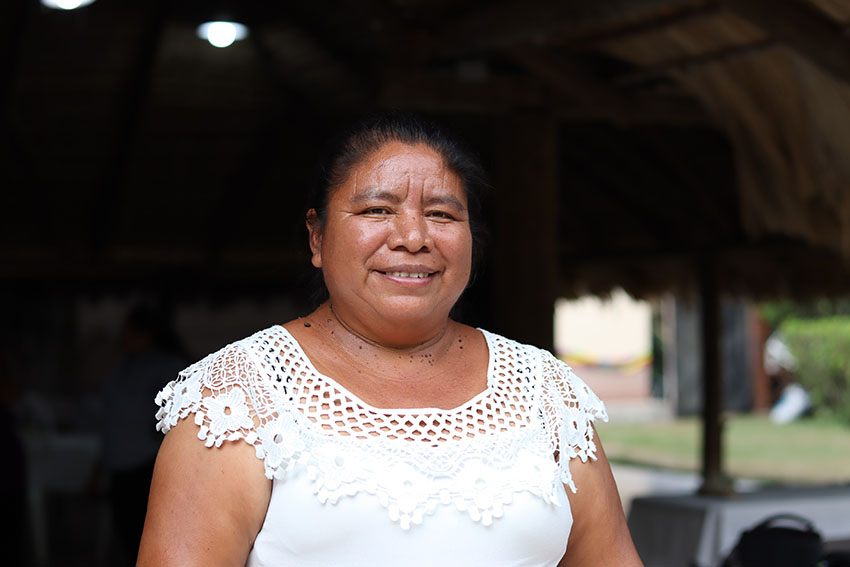
It is expected that by the end of the year, ESCALAR will have at least two more implementing partner organizations to work in the region. This activity also provided visibility to the importance of teams and individuals with administrative roles within the project's operation and proper functioning.
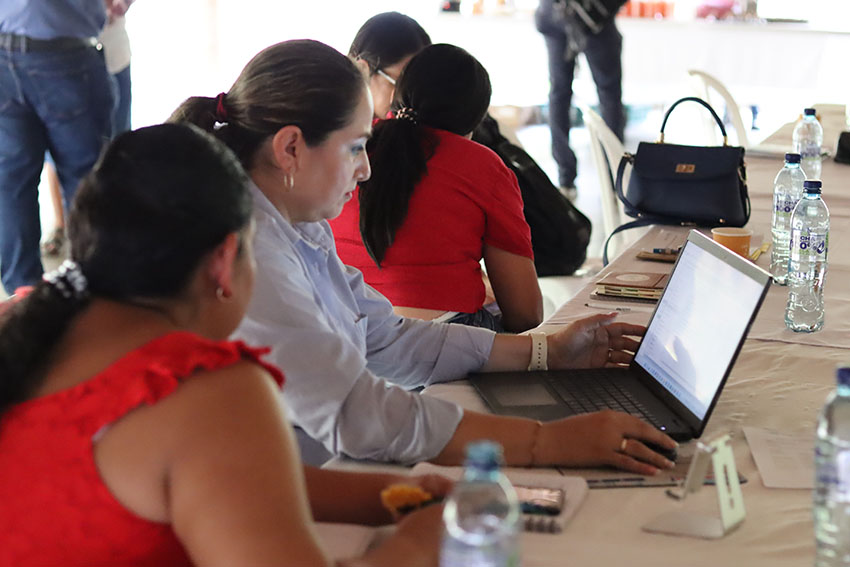
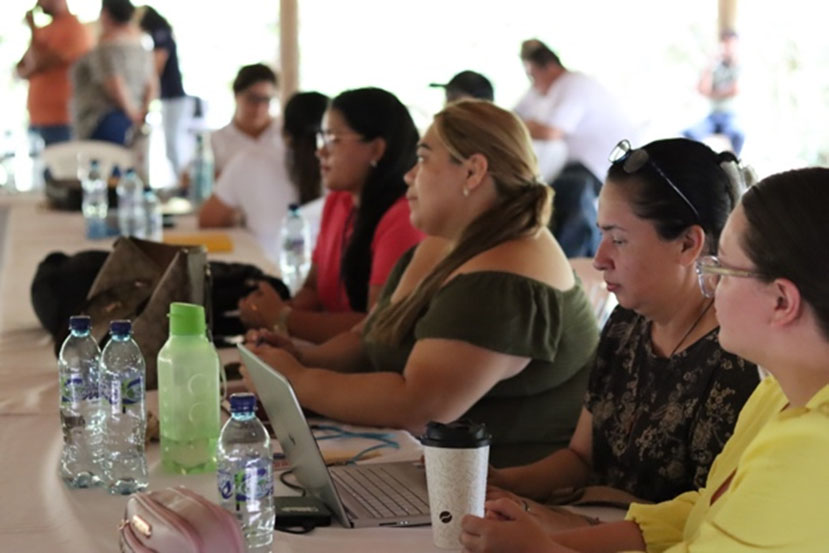
More information:
Álvaro Castillo
Administrative Officer Environmental Economics and Sustainable Agribusiness Unit
ESCALAR Project
CATIE
alvaro.castillo@catie.ac.cr
Written by:
Donaji Garcia
Specialist in Communication for Development
ESCALAR Project
CATIE
donaji.garcia@catie.ac.cr


